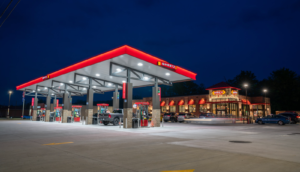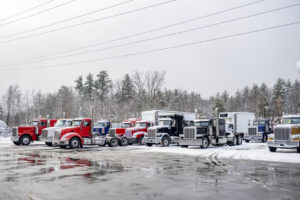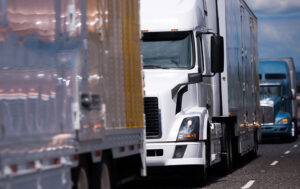Driving professionally can be a rewarding experience, but just how rewarding often depends on choices the driver makes while on the road. For many drivers, making a living on the road means LIVING on the road. You’ll need to eat, sleep and shower, and you may need medicine, clothing, tools and even entertainment. How you deal with these needs can make a huge difference in your take-home pay.
Let’s start with meals. If you plan to eat three meals a day at truck-stop restaurants, understand that you’ll be spending a large part of each week’s pay on food. Even a fast-food burger and fries will cost the better part of a $10 bill. A sit-down meal at a restaurant will very likely cost more than $10 — and you’ll need to add a tip for your server, too. Eat your meals in restaurants, and buy a couple of snacks for later on your way back to the truck, and you can easily drop $50 a day just on food.
Almost every truck stop has a C-store (that’s a convenience store, for those new to the road). You’ll spend $2 for a soda here, $4 for a bag of chips there — and before you know it, another $10 bill is gone.
Drivers who want to reserve the biggest possible payday for their families back home should have a plan for supplying themselves with affordable food, beverages and snacks while on the road. Stocking up is a good idea.
A 12-pack of soda might cost $4.50 at the local grocery, but buying those 12 cans individually at truck stops will cost three or four times as much. A 24-bottle case of water costs $5 or less locally, but it’s rare to find a single bottle priced as low as $1 at a truck stop. Items such as candy and chips are cheaper at the grocery story, too. Even better, vegetables, like carrots or celery, and fruit are easier to find — and better for your health.
As for meals, you can often find a box of four or more frozen breakfast sandwiches for the cost of one fast-food offering.
Canned chili, stews and soups are about $2 each. A loaf of bread and a pound of your favorite lunch meat will provide several meals at a much lower cost than one at a restaurant.
Another trick used by some drivers is to prepare and freeze meals while at home and then heat them while on the road.
Meals on the road will require an investment in cooking/warming devices. The easiest to use is a microwave, but you’ll need a power inverter to run one. There are numerous 12-volt options that take longer to heat a meal but require less power. Try to avoid pots and cookers that need to be washed and instead, look for products that warm foods still in the container.
Every driver should carry a first-aid kit while on the road. Bandages, tape and wound cleaner are a must, but it’s a good idea carry some routine medicines, too. Aspirin, heartburn tablets, allergy tablets and other medical supplies can be outrageously expensive at truck stops. Stock up at a local “dollar” store and be prepared, just in case.
Personal items such as gloves, hats and sunglasses can also be expensive on the road. It’s always a good idea to have a box or bag of items you may need rather than buying them while traveling. An extra pair of shoes or boots is a wise choice, as is some cold-weather gear.
No matter how well you prepare for the road, you’ll occasionally need cash. If you don’t bring enough with you to last, you might find it expensive to get more. Many carriers allow you to take advances using your company fuel card. Avoid expensive payday surprises by making sure you understand the fee system. Some transactions may be “free,” like drawing an advance in conjunction with a fuel purchase. However, some carriers limit the number of transactions per week, and the charges for obtaining cash without buying fuel can be high.
Something else to remember about those carrier advances is that they are loans against your paycheck. They WILL be deducted from an upcoming paycheck. Some drivers are shocked to learn that most of a week’s check was eaten up by deductions for advances taken, making it difficult to pay bills that week. Use advances wisely.
Other drivers depend on ATM cards to access the cash in their own bank accounts. ATM transactions on the road can result in two fees — one to the bank that owns the ATM and another to the bank that issued the card. Credit-card advances can cost even more if there’s an advance fee — plus interest and ATM fees.
The best practice is to minimize the number of times you need to draw cash while on the road. If you must get cash on the road, try to get enough that you won’t need to make another withdrawal before you get home.
Remember, a hot restaurant meal or an occasional treat can make road life more enjoyable. But if you want to make the most of your trucking paycheck, it’s wise to limit expenses and conserve your cash so you can spend it on the reason you’re on the road to start with — those waiting at home.
Cliff Abbott is an experienced commercial vehicle driver and owner-operator who still holds a CDL in his home state of Alabama. In nearly 40 years in trucking, he’s been an instructor and trainer and has managed safety and recruiting operations for several carriers. Having never lost his love of the road, Cliff has written a book and hundreds of songs and has been writing for The Trucker for more than a decade.











